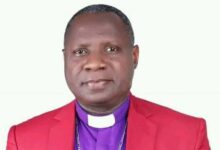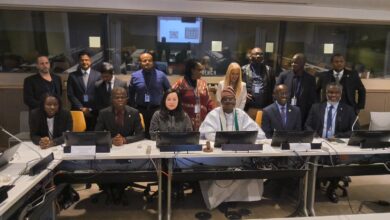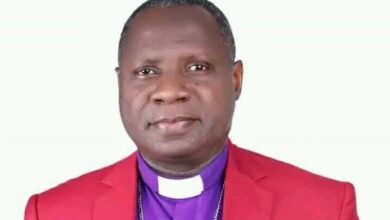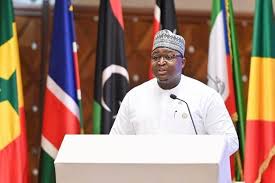2023: Shun Hypocrisy, Kaigama Tells Politicians

Ahead of the 2023 general elections, the Catholic Archbishop of Abuja, Most Revd. Ignatius Kaigama, has tasked politicians on the need to purge themselves of all forms of hypocrisy, saying the development will allow for genuine interests in the polity.
The Archbishop gave the charge on Sunday in his homily delivered at St. Martin of Tours Catholic Church, Lugbe, in Abuja.
TheFact Nigeria noted that Kaigama said the nation needs leaders, who will put the interest of the masses above their personal ambitions.
“At this time of political sensitivity, politicians will be pointing fingers of blame with hypocritical indignation at one another, seeing the speck in the others’ eyes but failing to see the big log in theirs.
“They should first rid themselves of the very dirt in their hearts or political package as they and their political parties fight for electoral victory, presumably, to make our country better.
“Our nation is in danger of toiling all night without catching any fish, which is why hunger and poverty increase, crime, violence, unemployment of youths, worsening economic conditions, etc., stare us menacingly in the face.
“ As the waves of electioneering hit the air, we must pray fervently that those seeking political offices will be guided by the genuine interests of the suffering Nigerians, without compromising the electoral process,
“In this pandemic era when we are often masked, it is difficult to know the correct identity of who is behind the mask. However, no matter how masked we may be, God knows us as we are, through and through. Nothing is hidden from God’s sight before whom we must give account (cf. Heb. 4:13).
“ Today we are encouraged to accuse ourselves and admit personal guilt, as we say at Mass, ‘through my fault, through my fault, through my most grievous fault’, with a broken spirit and a broken contrite heart,” he said.
The cleric, while reflecting on the readings, said: “A careful reflection on our readings today reveals the feeling and expression of unworthiness by three great personalities (Isaiah, Paul and Peter), having been called by God. Isaiah said: “I am a man of unclean lips” (Is. 6:5), Paul admitted: “I am the least of the apostles” (1 Cor. 15:9), and Peter pleaded: “Leave me, Lord; I am a sinful man” (Lk. 5:8). They all acknowledged their unworthiness, weaknesses and shortcomings, indicating that they needed God’s grace and blessing in order to succeed in their mission.
“The first reading speaks of the call of Isaiah as a prophet. Isaiah’s call came at a period in the history of Israel’s unfaithfulness to God. The nation got involved in unholy political schemes in the vain attempt to secure their safety rather than depend on God’s protection.
“ Isaiah in the vision saw the Lord sitting on a throne; Seraphs singing “Holy, Holy, Holy is the Lord of hosts; and the “house filled with smoke” (cf. Is. 1:1-4). He heard the voice of the Lord saying, “Whom shall I send, and who will go for us?” And Isaiah said, “Here am I; send me’” (Is. 6:8).
“The spiritual experience in the call of Isaiah teaches us that before we can minister to others, we must first of all permit God to minister to us. Our world today, like Judah in the days of Isaiah, is morally sick and decaying, and we are called to redeem it. In calling us, God tells us not to mind our human weakness but rather to trust in His grace and mercy for us”.
He added thus: “The text of the second reading was St. Paul’s defence of his authority to preach the Gospel. He speaks of his call: “Last of all, as to one untimely born, he (Christ) appeared also to me. For I am the least of the apostles, ‘unfit to be called an apostle’, because I persecuted the Church of God” (1 Cor. 15:8-9).
“ His call is described also in Acts 9:3-6, where Paul recounts how he found his vocation. He acknowledged his past sins, and attributes his call to the miracle of grace, “Though it is not I, but the grace of God working in me” (1 Cor. 15:10)”.






